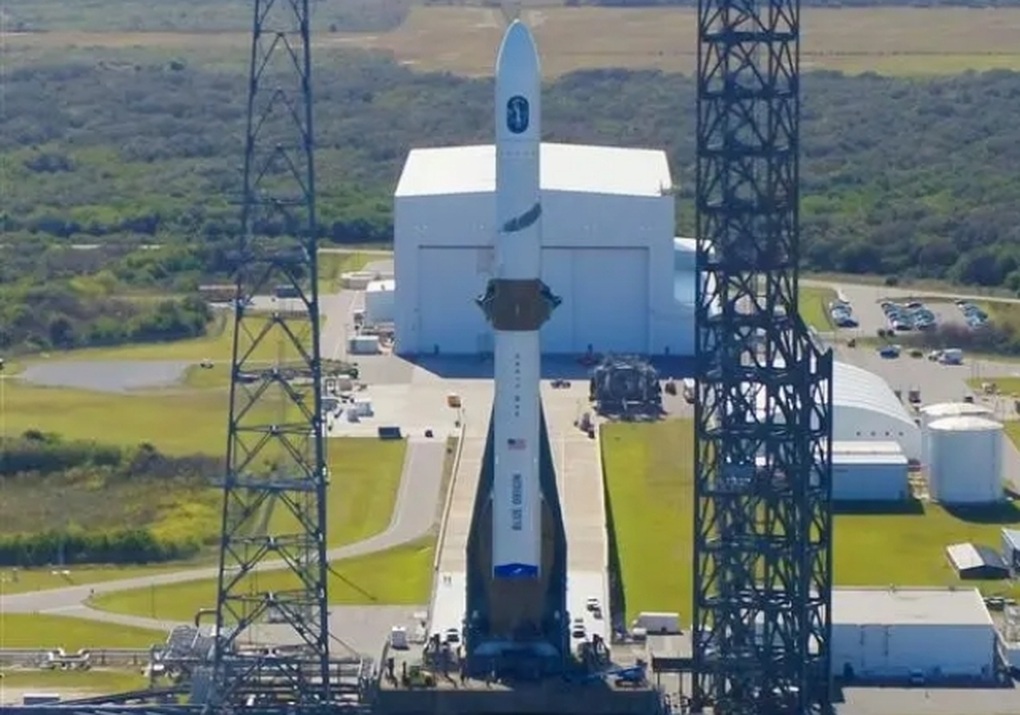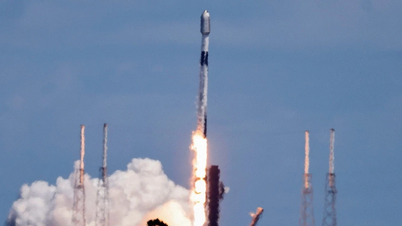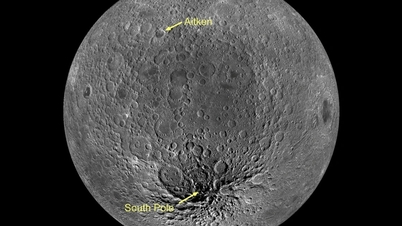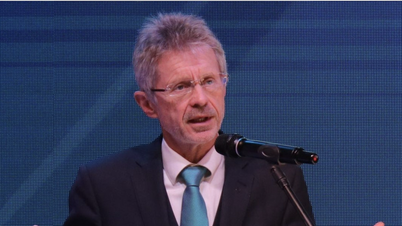Billionaire Jeff Bezos' space company made history on November 13 when it successfully recovered its New Glenn rocket after its second flight, ushering in a new era in the commercial space race.

The launch, which was delayed for days due to adverse weather conditions both on Earth and in space, ended with cheers and jubilation at the launch site at Cape Canaveral.
The booster landed gently on a floating platform, an achievement previously only achieved by Elon Musk's SpaceX with orbital rockets.
Fierce competition
Blue Origin's success comes amid increasingly fierce competition between two private space giants. The US space agency NASA recently opened bidding for its planned lunar mission, further heating up the race.
Jared Isaacman, a Musk ally who was recently re-nominated by President Donald Trump to head NASA, expressed his admiration on X: "This is awesome!" and sent his congratulations to Blue Origin. Even Musk did not hesitate to praise his rival: "Congratulations to @JeffBezos and the @BlueOrigin team!"
New Glenn's flight has faced several delays. On November 9, the weather on Earth was unfavorable. On November 12, "increased solar activity" raised concerns among NASA that it could affect the spacecraft.
Even more, on November 13, more problems that Blue Origin did not explain caused delays. Finally, at 3:55 pm on November 13 local time (ie 3:55 am on November 14 Hanoi time), New Glenn took off.

Mars Missions and the Future of Reusability
The 98-meter-long New Glenn rocket is currently carrying NASA’s twin ESCAPADE spacecraft to Mars. The mission’s goal is to study the Red Planet’s climate history, with the hope of eventually sending humans to explore it directly. The applause rang out once again when the spacecraft successfully deployed.
NASA solar physicist Joseph Westlake explained that the Blue and Gold spacecraft will find a “safe, benign parking orbit” to “measure space weather on Earth.” Then, in the fall of 2026, when the planets have reached their ideal alignment, the spacecraft will begin their journey to Mars, landing in 2027.
The successful launch and recovery of the booster opens up the possibility of more frequent flights in the future, not limited by the time Earth and Mars align directly (about once every two years).
New Glenn’s first flight in January was also marked as a success, as the payload reached orbit and completed tests. However, the first stage booster was lost during the landing. The achievement on November 13 shows that Blue Origin is getting closer to its goal of reducing costs by reusing rocket boosters.
“Launch, land, repeat – starting today,” declared Eddie Seyffert, one of Blue Origin’s on-air commentators.

This success comes as the Trump administration is putting pressure on NASA to speed up the process of putting humans on the Moon, in a race with China.
George Nield, a senior aerospace executive, said the launch would be an “indicator” of Blue Origin’s progress and could show “whether they can play a larger role in lunar exploration in the near future.”
Source: https://dantri.com.vn/khoa-hoc/dot-pha-blue-origin-thuc-hien-thanh-cong-vu-phong-ten-lua-day-len-sao-hoa-20251115053514937.htm




![[Photo] Panorama of the 2025 Community Action Awards Final Round](https://vphoto.vietnam.vn/thumb/1200x675/vietnam/resource/IMAGE/2025/11/15/1763206932975_chi-7868-jpg.webp)

![[Photo] General Secretary To Lam receives Governor of Kanagawa Province (Japan) Kuroiwa Yuji](https://vphoto.vietnam.vn/thumb/1200x675/vietnam/resource/IMAGE/2025/11/15/1763204231089_a1-bnd-7718-5559-jpg.webp)
![[Photo] Exciting contest of skillful red fruit picking and creativity from Son La coffee beans](https://vphoto.vietnam.vn/thumb/1200x675/vietnam/resource/IMAGE/2025/11/15/1763201832979_ndo_bl_3-jpg.webp)



































































































Comment (0)